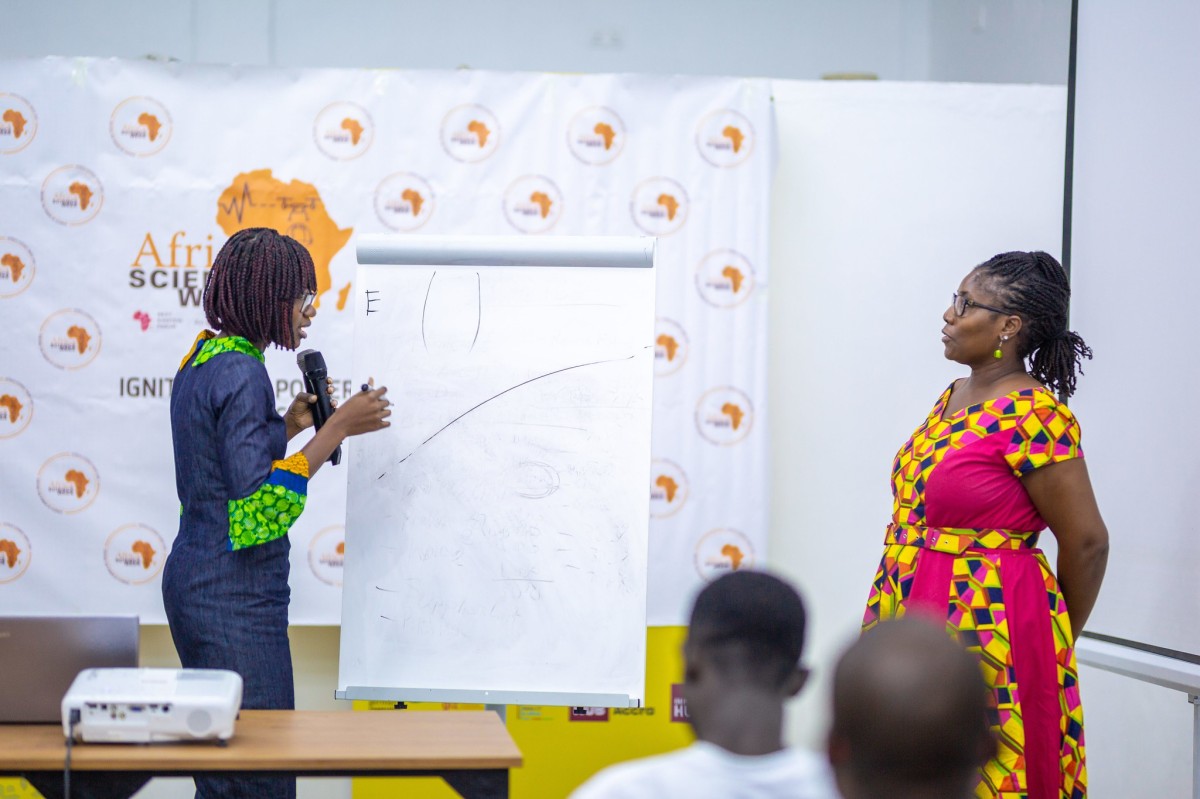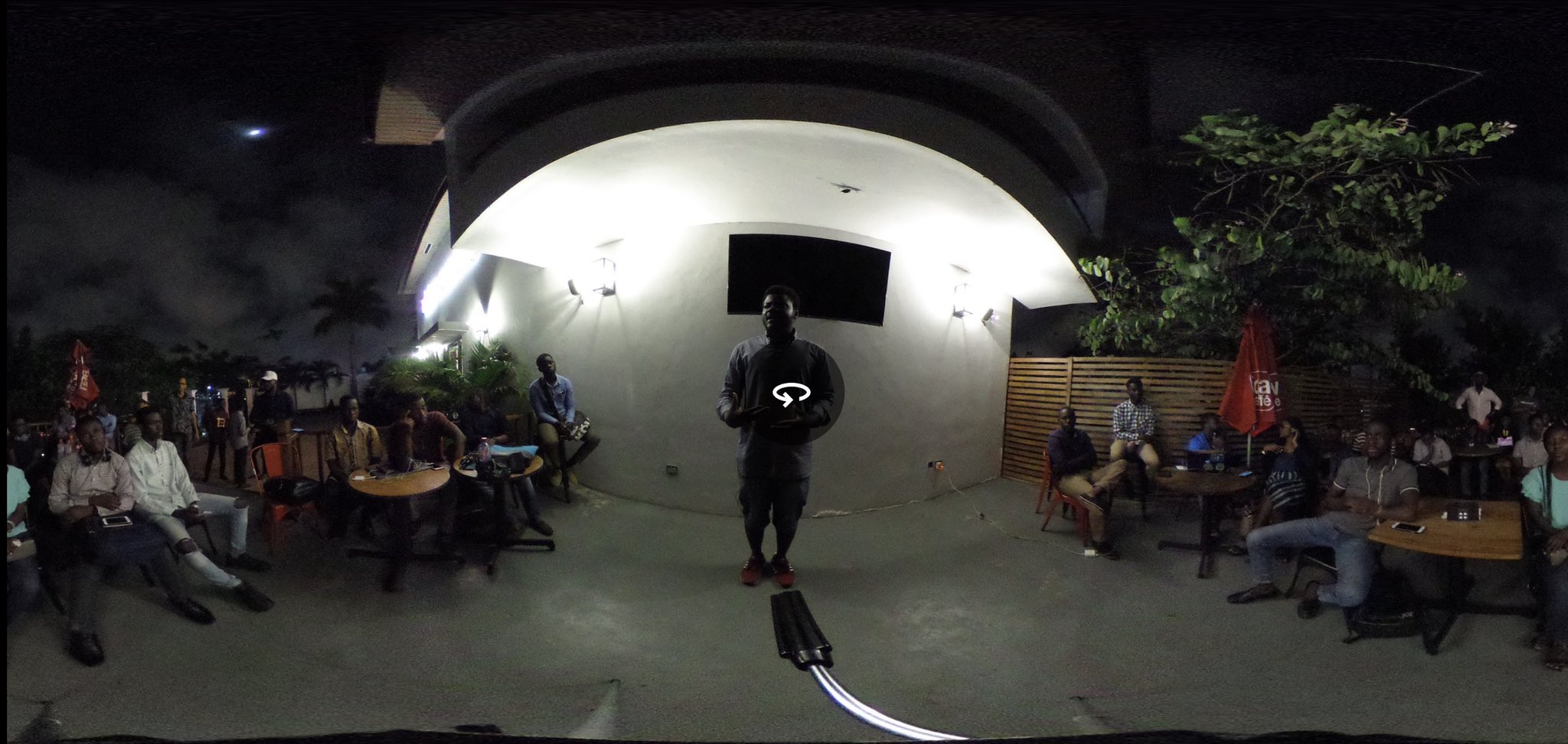People who want to get things done will find a way to get it done, irrespective of the pandemic
Ato Ulzen-Appiah
This month we partnered with Ghana STEM Network to have an amazing discussion on the notion of resilience in a time of profound global change by examining experiences, reflections, research findings, and imaginations of what the future could look like or should be like, as part of our Science Cafe Series. We were also supported by GhScientific and Digital Times Africa. The event attracted about 36 participants from different fields of endeavour.

What has the crisis changed? How can we weave through present and future challenges wrought by the pandemic? What does ‘resilience’ mean for us as individuals, Ghanaians, and global citizens?
Key questions explored during the session
The program started with a brief presentation by Gameli Adzaho on Global Lab Network and Science Cafe, Evelyn Agyepong set the ball rolling by sharing some personal and global perspectives on the changes caused by the COVID-19 pandemic. In response to her thematic question ‘what has the crisis changed?’ Evelyn asked, `What hasn’t it changed’. She discussed the challenges she faced as a leader and an educator in including new technologies in teaching and the accompanying personal stresses in connecting with family and loved ones. In sharing her coping mechanisms with us, Evelyn disclosed that she engaged in science education with the public to increase knowledge on the virus and best practices to avoid its spread and connected with her family online through video calls and online games. Evelyn ended the discussion on the key note that

We will move forward, but life as we know it has definitely changed
Evelyn Agyepong
Ato Ulzen-Appiah of the Ghana Think Tank joined us to share some examples of individuals who have been resilient during the lockdown and the crisis as a whole. He mentioned how Ernest Tsifodze, who does a lot of work around motivational speaking, was able to go virtual, bringing people across Ghana together online for continued impact. Ato further stated that more people need to share how they’ve been able to cope with the pandemic to increase knowledge and awareness on how other individuals can do the same. He asserted that, in the midst of the pandemic, people who want to get things done will find a way to get it done irrespective of the current crisis, citing examples of Accra Konnect and Kumasi Konnect, as responses to the challenge of physical meetups.

Dr Thomas Tagoe who is a Neuroscientist, Science Communicator and the Co-founder of GhScientific, discussed resilience from a neuroscience angle. Among the key points he posited on how to cope and subsequently thrive during the crisis include:
- Acceptance; accepting that we may not be able to go back to the old way of doing things and usual outputs may have to be adjusted. Research has shown that by coming to terms with whatever context one finds themselves in, it is easier for new patterns and behaviors to develop.
- Considering motivation and linking that with a cognitive approach; behavioural change occurs within people along two angles, the motivational element which involves the will to change and the more cognitive approach which deals with the how. This includes finding alternative approaches to achieving goals.
- Community building; The mere idea of knowing that someone else is in the same situation you are in makes one feel better and helps with dealing with acceptance. It makes adjusting to new situations easier on the mind.
- Cognitive control;” People who have cognitive control have the ability to connect goals with actions”. He averred that it may seem obvious but our brains and our mental wellbeing is such that anything we are capable of is broken into the minimum components. Connecting actions to goals is most critical for well-being, because mental health is the basis for resilience.
Following the incisive presentation from Dr Thomas Tagoe, Solomon Appekey of the Ghana Planetarium and X Space Solutions gave us an eye-opening presentation by taking us back 100 years on how the universe developed. Solomon discussed how the universe developed and explored the lessons we can learn from the growth in astronomical developments and how those lessons can be helpful during the current crisis.

Cecil Senna Nutakor joined us to share his views on some personal benefits of the pandemic. In his words “why the pandemic was supercool”, he lamented on how it had to take the occurrence of a pandemic to step up leadership in the country. According to him, the pandemic has drawn the government’s attention to infrastructural development, and the need to upgrade education (investing in digital) and health systems. In his recommendations on how we can forge ahead, he proposed an inclusive process in policy making process, a bottom-up approach in tackling the current crisis and fostering continued growth.
After the submissions from the speakers, the participants broke into smaller sessions to share their perspectives on how they have been resilient during the crisis and ended the session with a group photograph.
Talk of #impactfromabus ! We had two speakers on long distance journeys joining us from a bus . You can definitely join us on our next Community Call via the Global Lab Ghana Community. Follow us on twitter and on Youtube to stay updated on our events.
If you’re interested in sharing your research or STEM-based project at a future Science Cafe, you’re welcome to register via this link.
See you in our upcoming Community Call next month!






